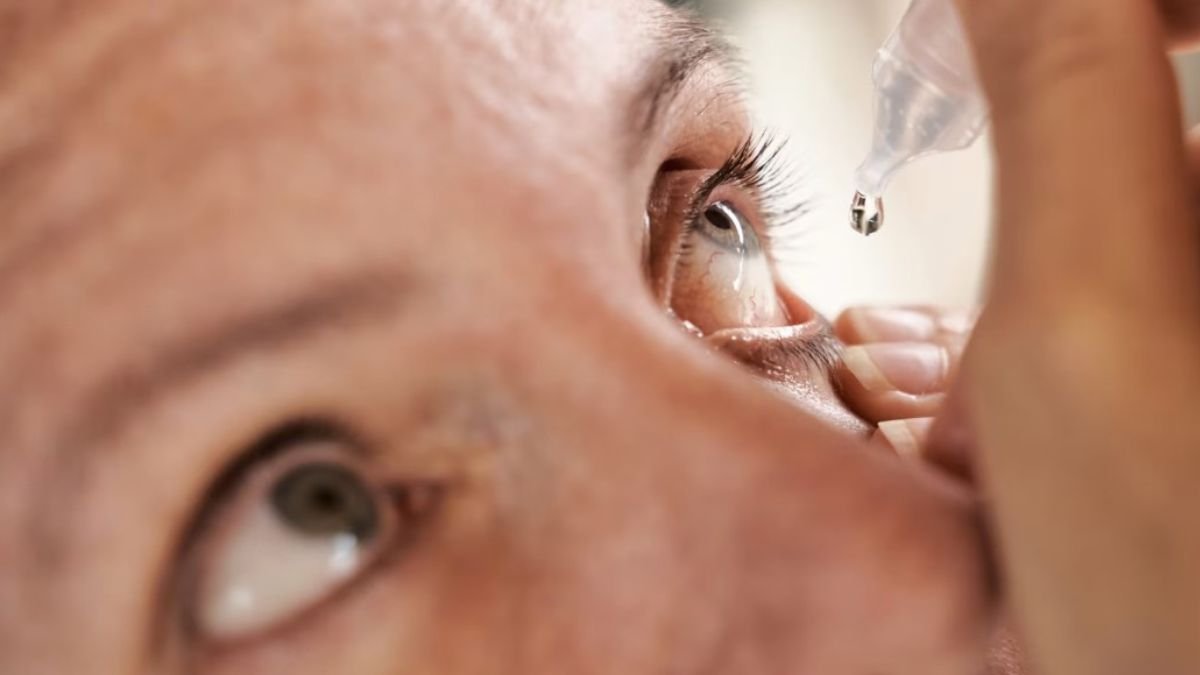A sweeping recall of over 75,000 cases of eye care products has been issued following an alarming discovery during an FDA inspection. The move comes after BRS Analytical Service, a pharmaceutical testing laboratory, found itself at the center of a significant eye care product recall FDA audit, raising concerns about product safety and consumer health across the country.
Why Were Eye Drops Recalled?
According to an enforcement report from the U.S. Food and Drug Administration, the massive eye care product recall FDA audit was triggered after a series of violations were uncovered during a regulatory inspection. The agency found that BRS Analytical Service failed to comply with Current Good Manufacturing Practices (cGMP), a strict set of standards designed to ensure product safety and quality.
AvKare, a well-known manufacturer of surgical and pharmaceutical goods, voluntarily initiated the recall. The company’s statement emphasized that due to insufficient sterility assurances, continued use of these products could pose serious risks to consumers.
“Lapses in sterile manufacturing practices can result in compromised quality and introduce the possibility of harm,” the FDA warned in connection with the eye care product recall, FDA audit findings.
Which Products Are Affected?
The recall involves various ophthalmic solutions distributed between May 26, 2023, and April 21, 2025. If you have any of the following items in your medicine cabinet, health officials urge you to discontinue use immediately:
- Artificial Tears Ophthalmic Solution (NDC# 50268-043-15)
- Carboxymethylcellulose Sodium Ophthalmic Gel 1% (NDC# 50268-066-15)
- Carboxymethylcellulose Sodium Ophthalmic Solution (NDC# 50268-068-15)
- Lubricant Eye Drops Solution (NDC# 50268-126-15)
- Polyvinyl Alcohol Ophthalmic Solution (NDC# 50268-678-15)
Each of these products was implicated in the eye care product recall, FDA audit, and removed from shelves due to concerns over contamination and sterility.
What Steps Should You Take?
If you suspect you’ve purchased any of the recalled items, AvKare recommends ceasing use immediately and beginning the return process. Consumers can fill out a Recall Form and email it to AvKare. In response, the company will issue a Return Authorization Form, which should be used to ship the products back, clearly labeled “Ophthalmic RECALL”, to:
R&S Northeast LLC
8407 Austin Tracy Road
Fountain Run, KY 42133
Refunds will be issued in full, including shipping costs.
This recall, sparked by the eye care product recall FDA audit, serves as a stark reminder of the importance of regulatory oversight and consumer vigilance.
Trusted Alternatives for Soothing Eye Irritation
For those who rely on eye lubricants to manage dryness or irritation, experts say there are safer options available. Below are some trusted, expert-recommended products that can help manage symptoms while avoiding risks associated with the eye care product recall FDA audit.
1. Warm Compresses for Daily Relief
Dr. Yuna Rapoport, a board-certified ophthalmologist at Manhattan Eye, advises using warm compresses for about 30 seconds daily to relieve dry eyes or symptoms of blepharitis.
2. Humidifiers for Dry Environments
Dry air can worsen eye irritation. Rapoport suggests using a humidifier—like the BPA-free Levoit Humidifier—to add moisture to your environment, especially during sleep.
3. Gentle Eyelid Cleansers
A great addition to your routine is the Daily Practice Purifying Foam Cleanser, which contains aloe vera and fruit extracts. This helps soothe eyelids and remove dust, pollen, or pollution—common irritants that exacerbate dry eyes.
4. Self-Heating Eye Compresses
The Rest Self-Heating Warm Compress is ideal for on-the-go relief without needing a microwave. Each pack includes 30 single-use compresses designed to unblock glands and reduce inflammation.
5. Reusable Moist Heat Pads
Another top-rated choice is the Bruder Moist Heat Eye Compress, a reusable antibacterial pad that uses moist heat to ease discomfort. With over 28,000 positive reviews, it’s a favorite among those seeking relief from conditions like styes, inflammation, and dryness.
These products, none of which are impacted by the eye care product recall FDA audit, provide reliable, tested alternatives for consumers needing safe eye care solutions.
Why This Recall Matters
The recent eye care product recall FDA audit underscores the necessity of rigorous manufacturing standards and swift action when safety is compromised. While eye drops are a common over-the-counter remedy, even these seemingly harmless products can pose risks if production quality is not maintained.
Consumers should remain alert to such recalls and always consult with healthcare professionals when selecting medical or therapeutic products. The eye care product recall FDA audit should serve as a critical learning moment for both manufacturers and consumers alike.
